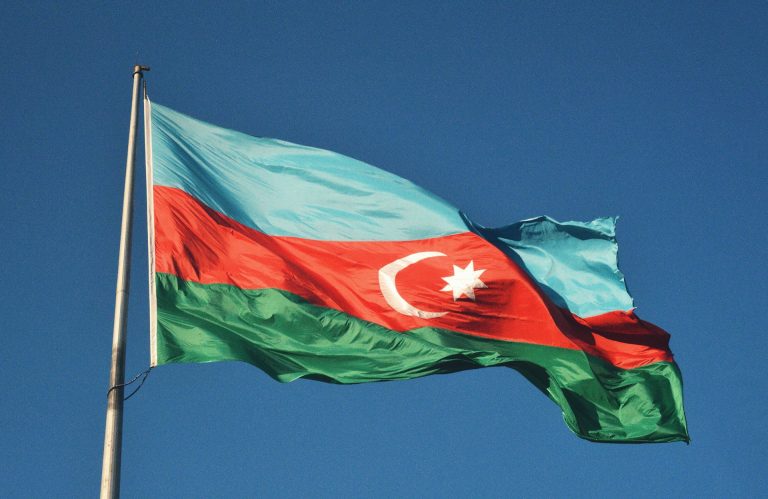Afghanistan’s digital sphere is experiencing a transformation, with the adoption of residential and mobile 5G proxies becoming increasingly significant for both personal privacy and business tactics.
These proxies, ranging from 3G to the prospect of 6G connectivity, serve as vital instruments in navigating the complexities of the internet securely and efficiently. Understanding the functionality and advantages of rotating residential proxies and mobile 3G proxies in Afghanistan reveals their critical role in enhancing digital security, facilitating market research, and improving content accessibility.
As we delve into the diverse proxy services available in the region, it’s essential to examine the intricate relationship these technologies have with the digital environment, highlighting their impact on online interactions and the broader digital ecosystem in Afghanistan.
In a Nutshell
- Afghanistan’s strategic location makes it a hotspot for proxy involvement by external powers.
- Proxies in Afghanistan offer anonymity, local knowledge, and cost-effectiveness for foreign interventions.
- Various types of proxies, including residential, mobile, and data centers, cater to different needs for speed, reliability, and coverage.
- Proxies play a crucial role in business, education, personal privacy, and freedom of expression in Afghanistan.
Learn More About Us – SneakerNode
Optimize Your Online Presence with Sleek & Swift Proxies
Leverage High-Speed Residential Proxies Across 170+ Countries Specifically Tailored for Social Media Platforms, Data Harvesting, and Exclusive Sneaker Releases.
Claim Your Spot at Just $9.97
-WIDE GLOBAL REACH
-BYPASS RESTRICTIONS EFFORTLESSLY
-SUPPORTS HTTP & SOCKS5
-PRECISE LOCATION TARGETING
-FREE YOUR INTERNET EXPERIENCE
At SneakerNode, our state-of-the-art residential proxies are built from the ground up with the needs of digital marketers, data miners, and sneaker enthusiasts in mind, offering unparalleled performance and reliability.
Ready to elevate your online projects with perfectly clean proxies?
PEERLESS PROXY PERFORMANCE
BLAZING SPEEDS & SEAMLESS INTEGRATION.
With SneakerNode, experience pinpoint accuracy in GEO-targeting with advanced filters for country, city, and ISP, ensuring you’re virtually there, wherever “there” is.
Our proxies are compatible with HTTP/SOCKS4/SOCKS5 protocols and boast effortless integration into your preferred digital tools using either username/password or IP Address authentication methods.
INFINITE CONNECTION POSSIBILITIES.
At SneakerNode, we don’t limit your potential. Access over 5 million nodes worldwide across more than 170 countries with any subscription plan, all without worrying about proxy quotas.
Pay only for the bandwidth you consume, and let any unused bandwidth roll over to the next month—because at SneakerNode, your bandwidth is timeless.
Understanding Proxies
In the context of Afghanistan, the term ‘proxies’ refers to individuals or groups that are supported or controlled by external powers to achieve specific geopolitical objectives within the country. This phenomenon is not unique to Afghanistan; however, the nation’s strategic location and its historical and ongoing conflicts have made it a fertile ground for such activities. Proxies can range from militant organizations to political factions, each serving the interests of their foreign patrons while pursuing their local agendas.
The involvement of external powers in Afghanistan through proxies dates back to the Cold War era and has evolved considerably over the decades. These external actors provide support in various forms, including financial assistance, military training, and weapons, to influence Afghanistan’s political and security landscape. The rationale behind using proxies is often to achieve objectives that are considered too costly or risky to pursue directly.
Understanding the role and impact of proxies in Afghanistan requires a nuanced analysis of the regional and global geopolitical dynamics. It involves examining the motivations of the external powers, the objectives they seek to achieve through their proxies, and the implications for Afghanistan’s sovereignty and the well-being of its people.
Benefits of Using Proxies
Understanding the role and impact of proxies in Afghanistan sets the stage for exploring the advantages these entities provide to external powers engaged in the region. Proxies, whether they are groups or individuals, offer several strategic benefits that are critical in the complex geopolitical landscape of Afghanistan.
To begin with, using proxies allows for a level of anonymity and deniability for external powers. This is particularly useful in covert operations or in situations where direct involvement could lead to international backlash or escalate conflicts. Proxies can carry out tasks without directly implicating the supporting nation, maintaining a façade of non-involvement.
Second, proxies provide localized knowledge and access that foreign entities might lack. Their deep understanding of the cultural, social, and political intricacies of Afghanistan can be invaluable for conducting operations, gathering intelligence, and navigating the terrain both literally and figuratively. This localized insight enhances the effectiveness of any external strategy or intervention.
Lastly, engaging proxies is often more cost-effective compared to direct military involvement or other forms of intervention. It allows for the achievement of strategic objectives without the significant financial and human costs typically associated with direct action. This economic efficiency makes proxies an attractive option for external powers with interests in Afghanistan.
Types of Afghan Proxies
Afghanistan’s geopolitical landscape is shaped remarkably by a diverse array of proxies, ranging from militant groups to local warlords. This complexity extends to the digital world, where the types of Afghan proxies can be categorized into several distinct groups based on their functionality and primary usage.
To begin, residential proxies are prevalent for their reliability and authenticity. These proxies use real IP addresses provided by internet service providers (ISPs) to Afghan residents, making them less likely to be flagged or blocked by online services. They are ideal for tasks requiring high levels of trust and legitimacy.
Next, mobile proxies are another significant category. Leveraging IP addresses from mobile networks, these proxies offer unique advantages in terms of anonymity and accessibility, especially in regions where mobile internet is more widespread than traditional broadband connections.
Datacenter proxies, though less common due to Afghanistan’s infrastructure challenges, provide high-speed connections and are primarily used for tasks requiring significant bandwidth and low latency. These proxies are hosted in data centers, offering a different IP footprint compared to residential or mobile proxies.
Lastly, Afghan proxies may also be characterized by the specific technologies they support, such as 3G/4G/LTE, and the emerging 5G and 6G networks, each providing varying levels of speed, reliability, and coverage.
Setting Up Your Proxy
Having explored the various types of proxies available in Afghanistan, it is now important to address the key steps involved in setting up your chosen proxy.
To start, select a reliable proxy provider that offers services within Afghanistan, focusing on those that support residential or mobile proxies, depending on your needs. Make sure the provider offers a good balance of speed, security, and privacy. After choosing a provider, proceed to create an account with them, and purchase the proxy plan that fits your requirements.
Next, configure your device or network to use the proxy. This typically involves accessing the settings or preferences section of your browser or application and entering the proxy server’s IP address and port number provided by your proxy service. For enhanced security, some providers may also require you to enter a username and password.
Proxy Use Cases in Afghanistan
Exploring the myriad applications of proxies in Afghanistan reveals their critical role in various sectors, including business, education, and personal privacy.
In the business domain, companies leverage proxies to conduct market research and gather competitive intelligence without revealing their IP addresses. This anonymity allows for the collection of accurate, unbiased data, vital for strategic planning and decision-making. Moreover, proxies facilitate access to international markets by overcoming geo-restrictions, enabling businesses to explore and penetrate new markets efficiently.
In the educational sector, proxies play a pivotal role by providing access to academic resources and research material that might be restricted due to geopolitical constraints or copyright issues. This ensures that students and researchers in Afghanistan can access a global repository of knowledge, fostering an environment of learning and innovation.
For individuals, the importance of proxies extends to personal privacy and security. In an era where digital surveillance is prevalent, proxies offer a layer of anonymity, protecting users from potential cyber threats and safeguarding their privacy online. They also enable Afghan citizens to bypass censorship, accessing a free and open internet, which is indispensable for the exercise of freedom of expression and the acquisition of information in the digital age.
FAQ on Proxies in Afghanistan – (Afghanistan Residential & Mobile 3G/4G/LTE/5G/6G Proxies)
1. What are proxies?
Proxies are intermediary servers that separate end users from the websites they browse. They can provide different levels of functionality, security, and privacy depending on your needs.
2. Why would I need to use a proxy in Afghanistan?
There are several reasons one might use a proxy in Afghanistan, including accessing geo-blocked content, maintaining anonymity while browsing, securing data on public Wi-Fi networks, and conducting online research without revealing one’s IP address.
3. What is the difference between residential and mobile proxies in Afghanistan?
Residential proxies assign you an IP address that belongs to a genuine Afghan device, making it less likely to be blocked or detected as suspicious. On the other hand, mobile proxies use IP addresses assigned to mobile devices connected to 3G/4G/LTE/5G/6G networks, offering higher levels of anonymity and often more dynamic IP rotation.
4. Are there any legal concerns with using proxies in Afghanistan?
The legality of using proxies varies by country and purpose. In Afghanistan, it’s important to use proxies ethically and legally. Illegal activities conducted through proxies are punishable under Afghan law. Always consult local laws and regulations to ensure compliance.
5. How can proxies help with accessing content in Afghanistan?
Proxies can help bypass geo-restrictions, enabling access to content and websites that are blocked or not available in Afghanistan. This is particularly beneficial for accessing international services or news sites.
6. What should I look for when choosing a proxy provider in Afghanistan?
Key factors to consider include the reliability and uptime of the service, the speed and bandwidth offered, the level of anonymity and security features, and the provider’s customer support and service quality.
7. Can using a proxy in Afghanistan improve internet speed?
Not typically. Because your internet traffic is routed through an additional server, using a proxy might slightly increase latency. However, mobile proxies, especially those on 4G/LTE/5G/6G networks, may offer high speeds suitable for streaming and high-bandwidth activities.
8. Are there free proxies available in Afghanistan?
Yes, there are free proxies available, but they often come with risks such as poor performance, lack of security, and the potential for malicious activity. It is generally recommended to use a reputable paid proxy service for the best balance of safety, reliability, and speed.
9. How do I set up a proxy on my device in Afghanistan?
Setting up a proxy varies depending on the device and operating system. Most devices and browsers offer proxy settings where you can manually enter the proxy server details provided by your proxy service. Always follow the setup instructions provided by your chosen proxy provider.
10. Can proxies protect my privacy in Afghanistan?
Yes, proxies can enhance your online privacy by hiding your real IP address and encrypting your data, thus making it more difficult for third parties to track your activities. However, the level of privacy protection depends on the type of proxy and its configuration. For maximum privacy, consider using proxies with strong encryption and no-log policies.



